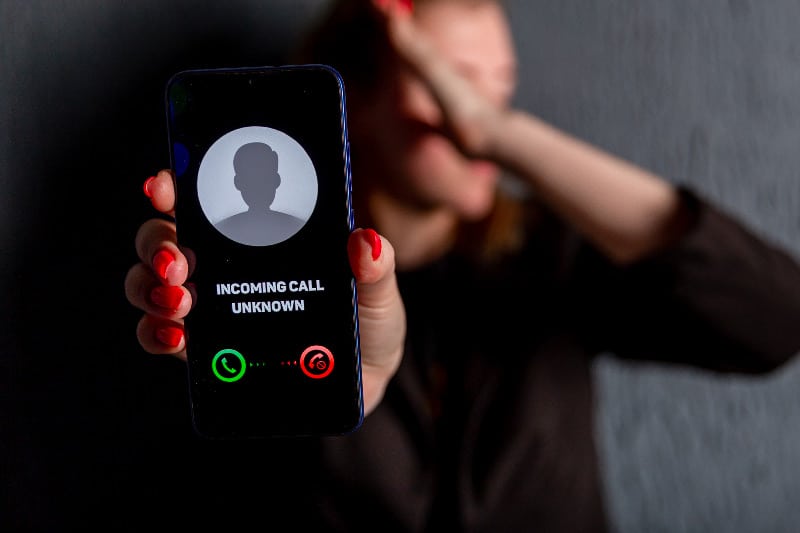What is the Do Not Call Registry? What are the laws in Australia on this matter?
The do not call register in Australia is a national service managed by the ACMA (Australian Communications and Media Authority) that allows individuals to opt out of receiving unsolicited telemarketing calls. It applies to private numbers, including mobiles, and some business numbers. Under the do not call register, telemarketers and businesses must not contact any number listed unless specific consent has been given. This system aims to reduce unsolicited calls from real estate agents and other telemarketers.
The law mandates that organisations check the no call register every 30 days to ensure compliance. You can register your number at donotcall.gov.au to stop real estate calls and other marketing messages.

Is Real Estate Cold Calling Legal?
Yes, but with strict conditions. Real estate cold calling is legal in Australia as long as it complies with the do not call register. Agents must not call any number listed on the real estate do not call list unless they have prior consent or a current relationship with the individual. Breaching these rules may result in significant penalties.
Calls must occur only within permitted hours and must not be misleading or pushy. If you’ve been wondering, why are real estate agents calling me, it could be because your number isn’t listed on the no call list Australia or you’ve previously provided consent.

How does the Do Not Call list affect real estate agents?
The do not call list real estate regulations mean that agents need to be extra cautious when making outbound calls. They must verify numbers against the do not call directory before dialling. Real estate professionals are not exempt from the rules, and failure to follow them can lead to fines. The not call registry ensures that individuals’ privacy is respected. Real estate businesses must subscribe to the do not call register and scrub their call lists every 30 days to avoid unsolicited calls from real estate agents.
Minimum and Maximum Fines:
-
Minimum Fine: The ACMA has issued infringement notices as low as $4,200 for breaches of the Do Not Call Register Act.
-
Maximum Fine: The maximum penalty the ACMA can impose is $170,000 per day for each day the breach continues. In cases of serious or repeated non-compliance, the Federal Court can impose penalties up to $1.7 million per day.

How to make cold calls correctly so as not to break the law if you are a real estate agent?
If you’re a real estate agent, ensure every number you call is screened against the do not call register. Obtain express consent before calling, and only contact people within legal hours. Use a compliant CRM that integrates with the do not contact registry to manage consent properly. Educate your team on how to stop sales calls violations by checking the do not call list frequently. Even if a lead comes from a referral, make sure to confirm they’re not on the no call register.

How to call correctly so as not to get on the Do Not Call list?
To avoid your number being flagged or complaints being made against your business, always respect consumer preferences. Follow the rules laid out by the do not call register in Australia, and don’t call individuals who haven’t given permission or are on the real estate do not call list. Using respectful and non-intrusive communication helps. Understanding how to stop real estate calls from your own business includes checking the do not call directory and offering easy opt-out options.

Does the do not call registry actually work?
Yes, the do not call register is effective at reducing unsolicited calls from real estate agents and other marketers. It holds businesses accountable and allows individuals to report violations. The not call registry is regularly enforced by the ACMA, with penalties imposed on those who breach it. If you’re tired of marketing calls, registering at donotcall.gov.au is one of the best ways to stop sales calls. Many Australians find it useful for regaining control over their phone privacy.

Are there exceptions to the Do Not Call Registry rules?
Yes, there are a few exceptions under the do not contact registry. These include calls from
- charities,
- political parties
- educational institutions
- market researchers.
However, these exceptions do not generally apply to real estate professionals. Real estate agents must adhere to the real estate do not call list unless the recipient has provided direct consent. Always double-check if an exception applies before making any outreach, especially if you suspect someone is on the do not call list.
How do I check the Do Not Call Register?
A system has been established for telemarketers to check, or ‘wash,’ their calling lists against the register. This offers an effective way for real estate agents to avoid breaking the Do Not Call Registry rules, which is an offence punishable by law. The system can be accessed through www.donotcall.gov.au with a subscription fee.
Alternatively, if you’re seeking a hassle-free approach to residential phone listings, you might find Radius Suburb useful. It’s an excellent resource for generating real estate leads and with phone listings washed every 21 days, it’s a reliable resource too. Contact Radius Suburb today to get ahead in the real estate game.



'Complete Guide to the ‘Do Not Call’ Registry rules for Real Estate Agents' have no comments
Be the first to comment this post!